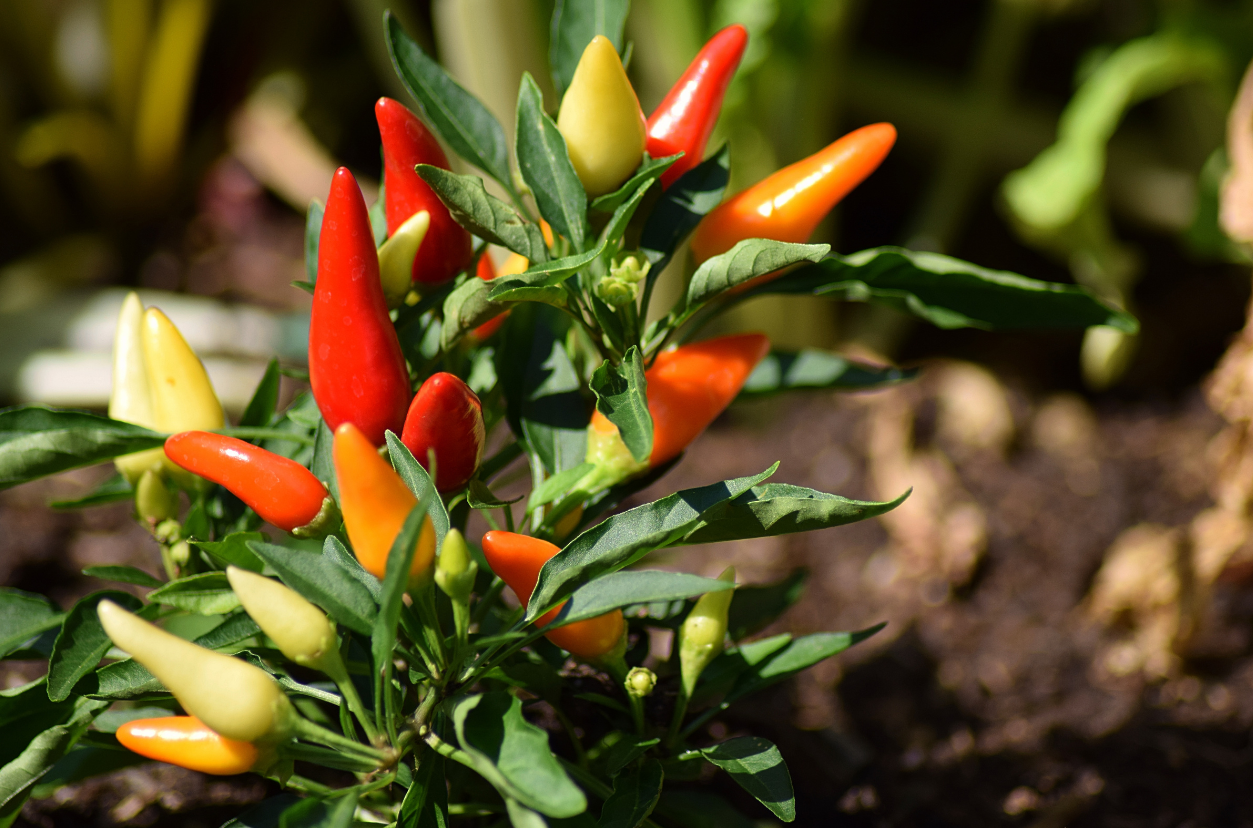Best Fertilizers for Peppers: Attain Superior Results in Your Garden
Wiki Article
Organic Vs. Synthetic Fertilizers: Which Is Best for Supporting Healthy Pepper Plants?
In the world of supporting healthy and balanced pepper plants, the selection between artificial and natural plant foods stands as a critical decision with significant ramifications. While both options objective to supply essential nutrients to support plant growth, the nuances of their influence on the dirt, plant health and wellness, and the atmosphere trigger an argument that mirrors throughout the horticulture community. Comprehending the distinctive advantages and possible pitfalls of each plant food type is crucial for pepper growers looking for to optimize their returns while preserving a lasting and eco-conscious approach.Benefits of Organic Plant Foods
Organic plant foods use an environmentally-friendly and lasting technique to beneficial pepper plants, providing necessary nutrients without making use of synthetic chemicals. These natural plant foods are derived from organic sources such as garden compost, manure, bone dish, and algae, promoting soil health and wellness and biodiversity. Unlike synthetic plant foods, natural choices release nutrients slowly, making sure a steady and well balanced supply for pepper plants to prosper.One significant advantage of organic fertilizers is their capacity to enhance soil structure and water retention. By improving dirt health, natural plant foods promote useful microbial task, which assists in nutrient uptake by pepper plants. Furthermore, natural plant foods decrease the danger of chemical run-off, safeguarding water resources from contamination and securing the atmosphere.
Furthermore, natural fertilizers add to long-term soil fertility by advertising the development of advantageous soil microorganisms. These organisms aid damage down raw material, releasing nutrients in a type that is conveniently obtainable to pepper plants. best fertilizers for peppers. By cultivating a healthy and balanced soil environment, natural fertilizers sustain sustainable pepper cultivation practices that benefit both plants and the atmosphere
Downsides of Artificial Plant Foods
Artificial plant foods, in comparison to their organic counterparts, present numerous downsides when used to nurture pepper plants, affecting both plant wellness and environmental sustainability. One significant disadvantage of artificial plant foods is their propensity to seep nutrients from the dirt swiftly. This rapid leaching can bring about nutrient inequalities in the dirt, triggering plants to deal with poisonings or shortages. In addition, synthetic plant foods can harm helpful soil microorganisms, such as earthworms and beneficial microorganisms, disrupting the soil ecosystem's balance.In addition, the overuse of artificial plant foods can add to water air pollution. Excess fertilizers not soaked up by plants can wash away right into water bodies, causing eutrophication, where algae flowers deplete oxygen degrees in the water, harming water life. Additionally, synthetic plant foods are generally derived from non-renewable sources, such as nonrenewable fuel sources, adding to carbon discharges and ecological deterioration during their production.
Nutrient Absorption Comparison
When contrasting synthetic and organic plant foods in terms of nutrient absorption, organic fertilizers have the advantage of giving an extra well balanced and slow-release resource of nutrients. Organic fertilizers contain a range of macro and trace elements that are not just useful for the plants but also advertise healthy and balanced dirt microbial activity, which helps in nutrient uptake.Moreover, organic fertilizers improve soil framework and water retention capacity, permitting pepper plants to gain access to nutrients extra effectively. This improved soil top quality promotes root growth, enabling much better nutrient absorption. Artificial plant foods, although originally enhancing plant development as a result of their high nutrient focus, may impede long-term nutrient absorption by derogatory soil health over time.
Environmental Impact Considerations

On the other hand, synthetic fertilizers, although usually even more promptly readily available and concentrated to plants, can have damaging effects on the environment if not applied effectively (best fertilizers for peppers). Their production needs high energy inputs, leading to greenhouse gas exhausts and adding to climate change. The overflow of excess artificial fertilizers can contaminate water sources, leading to eutrophication and hurting aquatic ecosystems.
Best Fertilizer Practices for Peppers
To attain this, it is vital to adhere to ideal fertilizer techniques customized to the details demands of pepper plants. One crucial practice is to carry out a soil examination prior to applying any type of plant foods.One more crucial method is to fertilize pepper plants at the appropriate time. Usually, peppers take advantage of obtaining plant food at planting and afterwards again when Check This Out they start to flower. Over-fertilizing can lead to vitamins and mineral imbalances and damage the plants, so it is essential to adhere to recommended application prices.
Additionally, picking a balanced fertilizer with an NPK ratio that suits pepper plants' needs is fundamental. Organic fertilizers, such as compost or manure, can be superb selections as they release nutrients slowly and improve dirt structure with time. Nevertheless, artificial fertilizers can give a fast nutrient boost when needed. Ultimately, integrating artificial and natural fertilizers sensibly can assist support healthy and balanced pepper plants while decreasing environmental impact.
Final Thought

Organic plant foods provide a lasting and environmentally-friendly approach to beneficial pepper plants, providing crucial nutrients without the usage of synthetic chemicals. Unlike synthetic fertilizers, natural choices launch nutrients slowly, ensuring a balanced and steady supply for pepper plants to thrive.
Synthetic plant foods, in contrast to their natural equivalents, pose numerous disadvantages when used to nurture pepper plants, influencing both plant wellness and environmental sustainability. When comparing organic and synthetic fertilizers in terms of nutrient absorption, natural plant foods have the advantage of supplying an extra balanced and slow-release resource of nutrients.Furthermore, organic plant foods improve soil structure and water retention ability, allowing pepper plants to accessibility nutrients much more efficiently.
Report this wiki page